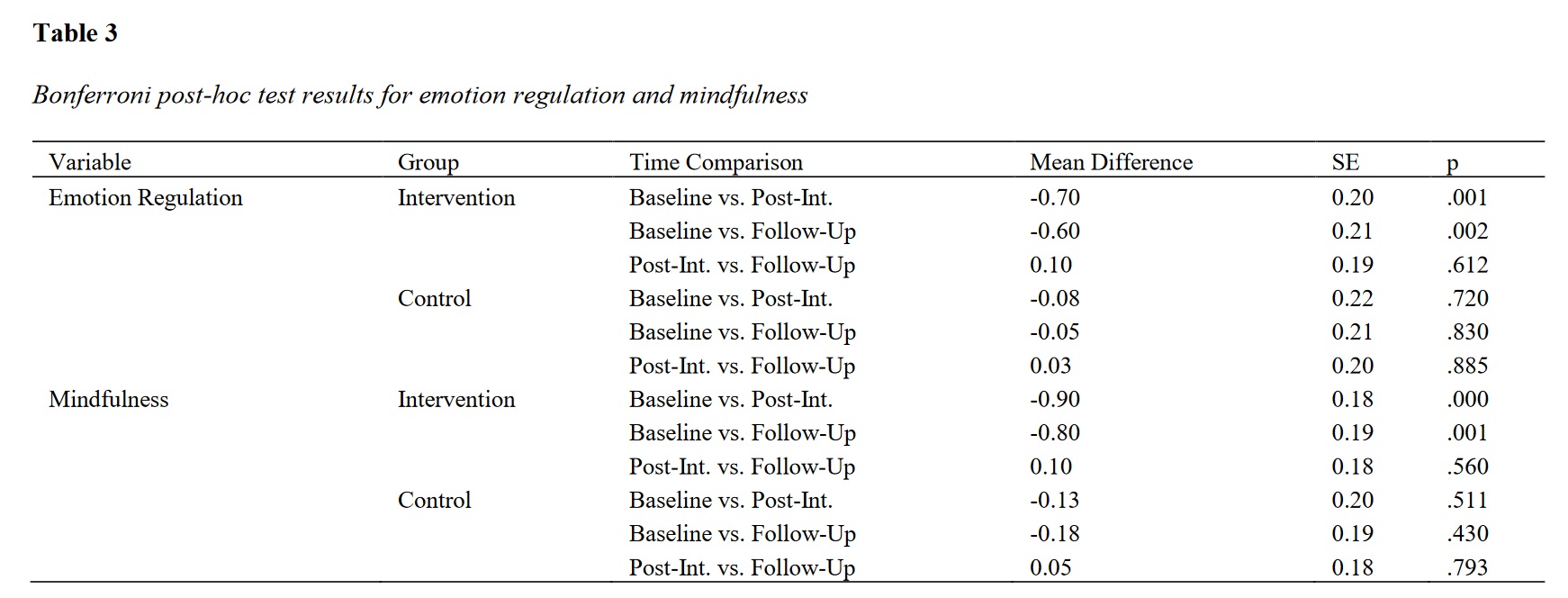Enhancing Emotional Well-Being Through Proactive Coping Training and Mindfulness: A Controlled Study
Keywords:
Proactive coping, mindfulness, emotion regulation, mental health, randomized controlled trial, cognitive reappraisal, interventionAbstract
The objective of this study was to evaluate the effectiveness of an eight-session proactive coping training program supplemented with mindfulness practices on enhancing emotion regulation and mindfulness levels among adults. The study aimed to determine whether the combined intervention would result in significant improvements compared to a control group. This study employed a randomized controlled trial (RCT) design involving 30 participants randomly assigned to either the intervention group (n=15) or the control group (n=15). The intervention consisted of eight weekly 90-minute sessions focusing on proactive coping strategies and mindfulness practices. Emotion regulation was assessed using the Emotion Regulation Questionnaire (ERQ) and mindfulness was measured using the Five Facet Mindfulness Questionnaire (FFMQ). Data were collected at three time points: baseline, immediately post-intervention, and at a four-month follow-up. Data analysis included repeated measures ANOVA with Bonferroni post-hoc tests using SPSS version 27. The results indicated significant improvements in both emotion regulation and mindfulness levels in the intervention group compared to the control group. Participants in the intervention group showed higher scores in cognitive reappraisal and mindfulness facets such as observing and acting with awareness. These improvements were sustained at the four-month follow-up, demonstrating the lasting effects of the intervention. The findings of this study suggest that integrating proactive coping training with mindfulness practices is an effective approach to enhancing emotion regulation and mindfulness. This combined intervention can provide individuals with robust tools for managing stress and improving mental health outcomes. Future research should explore the long-term benefits and potential applications of this approach in diverse populations.
Downloads

Downloads
Additional Files
Published
Issue
Section
Categories
License
Copyright (c) 2024 Mojtaba Shahbazimoghadam (Corresponding Author); Ali Bahadoran , Hanieh Saeidinik , Fatemeh Talkhabi , Atefe Namjoo (Author)

This work is licensed under a Creative Commons Attribution-NonCommercial 4.0 International License.







